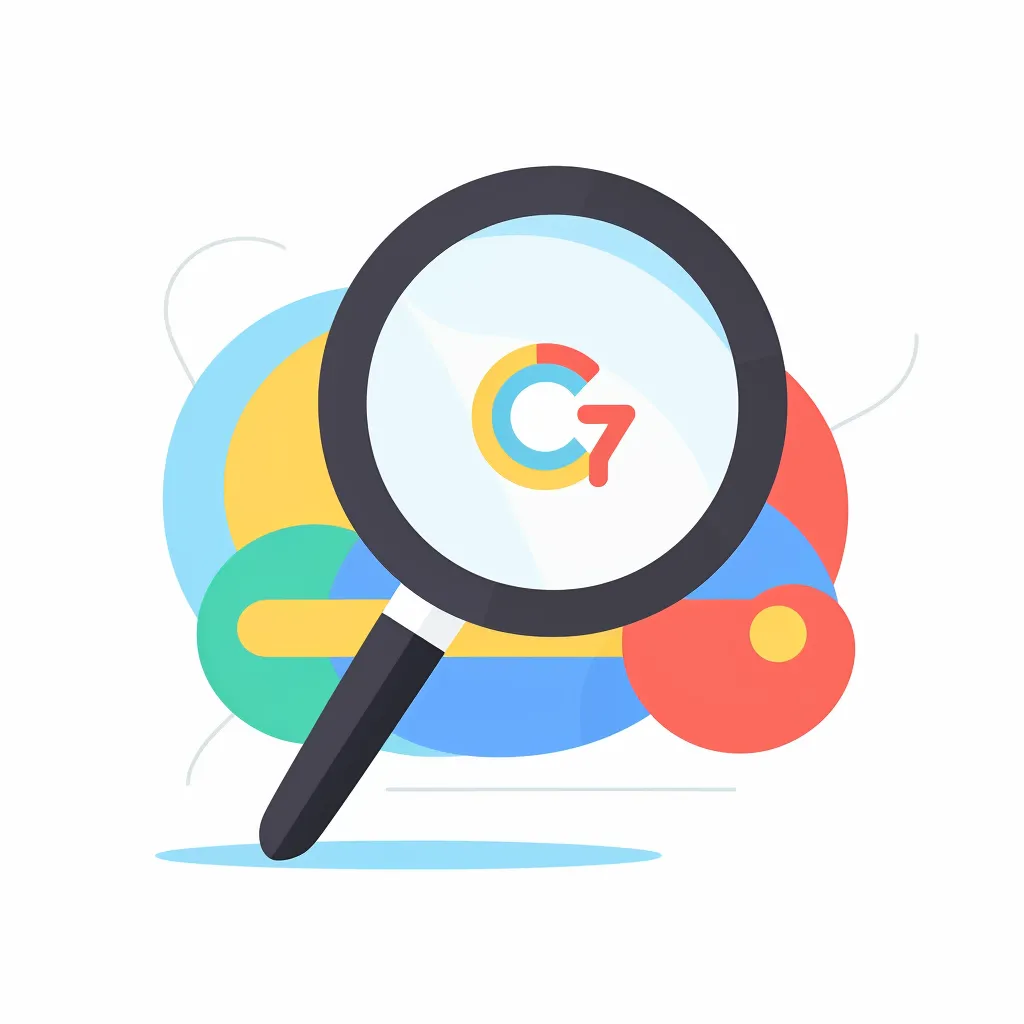"Why do we need one of these?" you might ask - Well, it seems, at least in the USA that Google has also created a product called Search Labs, and although they aren't first through the gate, they are a lot bigger. They don't offer it in Australia yet, but they likely will in the future - at which point they will need to reach out and have a chat with us. (support@searchlabs.com)

So what does Search Labs Pty. Ltd. do?
Search Labs PTY. LTD. helps businesses get noticed online. We are not part of the Google range of products, but we are experts in search technology. Always coming up with new ideas and ways to do things.
As a SEO agency Search Labs knows that it is important to stay ahead online. We have a range of different products and prices to fit what your business needs. We can charge by the hour, by the project, or based on competition, or more recently, provide services on a subscription basis.
We do more than just SEO. We can also help with email marketing, social media marketing, and instant ads and Conversion Rate Optimization (CRO).
Search Labs wants to help all businesses do well online. They have lots of services to help businesses with what they need.
Keyword Research

Keyword research is important for SEO. It helps find the words people use to search for things online. Keyword research helps businesses understand what their customers are searching for and improve their website's visibility in search results.
Keyword research is important for website owners to know which keywords to target for more organic traffic. Target keywords to align content with customer demand for more traffic and conversions.
Keyword research involves identifying relevant keywords, analysing search volume and competition, and selecting effective keywords for optimisation. To start, brainstorm keywords and analyse competitors' strategies to see what keywords they're using. After making a list of potential keywords, use keyword tools to analyse search volume, competition, and related keywords. This analysis helps businesses find the best keywords to focus on for success.
Keyword research is crucial for improving website visibility in search results. Targeting keywords helps businesses attract more traffic and reach their target audience.
On-Page SEO

'On-Page SEO' is a fundamental aspect of search engine optimization that focuses on optimizing individual webpages to rank higher and earn more relevant traffic in search engines. It involves both the content that is visible to users and the HTML source code of a page that is not visible to users.
Search Labs' uses correlation coefficient measurement of ranking factors to perform their 'On-Page SEO', this process is a scientific endeavor.
This approach involves analyzing the relationship between different webpage elements and their impact on search engine rankings.
The correlation coefficient measurement is a statistical tool that quantifies the degree to which two variables are related. In the context of 'On-Page SEO', these variables could be any on-page elements such as keyword usage, title tags, meta descriptions, header tags, image optimization, URL structure, and content quality.
We use CORA SEO and therefore make use of both Pearsons and Spearmans Correlation Coefficients
By measuring the correlation between these on-page elements and their effect on search engine rankings, SEO practitioners can identify which factors are most likely to influence the rankings. For instance, if the correlation between keyword usage in the title tag and search engine ranking is high, it suggests that including relevant keywords in the title tag is a significant ranking factor.
This data-driven approach allows for more precise and effective 'On-Page SEO' strategies. Instead of relying on general best practices or speculation, SEO practitioners can focus their efforts on optimizing the elements that have the most significant impact on rankings.
However, it's important to remember that correlation does not imply causation. Just because two variables correlate does not mean that one causes the other. Other off-page factors, such as backlinks and social signals, also play a crucial role in search engine rankings.
'On-Page SEO' using correlation coefficient measurement of ranking factors is a methodical, data-driven approach to optimizing a webpage. It involves identifying the on-page elements that have the most significant correlation with search engine rankings and focusing optimization efforts on these elements.
Goose Egg SEO
Coined by Ted Kubaitis from SEO Fight Club, Goose Egg SEO essentially means 'taking a page from 0 clicks, to more than 0 clicks' - but by using this methodology, we also find the line that moves the needle.
Link Building

Link building - this is an interesting one as the line between what is seen as 'uncool' by the engine is not clearly drawn in the sand.
Search Labs always attempts to play this game in alignment with what the engine approves.
Why do back links even matter? They improve website rankings and brings in organic traffic. By getting good backlinks from trusted websites, your website can become more credible and visible to search engines.
Think of it this way - a backlink from a newspaper, or a respected publication - like National Geographic means, that National Geographic (in this example) see your information as 'worth linking to' - 'worth referencing' - this implies to the search engine that people that understand this topic, have placed faith in your information.
You can see why they are valued by a search engine, specifically because they are hard to obtain. Your content needs to add value to a users journey, so much value that a website is willing to lose traffic in order to make the searchers journey better.
Link building is about asking other trustworthy websites in your industry to link to your site. Backlinks show search engines that your website is valuable to the searcher and should rank higher.
Quality backlinks from reputable websites can improve your site's authority and drive more referral traffic. Backlinks from other websites can bring in more interested users and boost your site's organic traffic.
Link building takes time and effort, but it's worth it in the end. To boost your website's SEO and get more visitors, focus on getting good backlinks and connecting with other website owners.
SEO Audit

The aims of a SEO audit are to help improve website's SEO performance, this might be by identifying errors in code, or errors in relationship or, just in errors of identifying your audience.
Website analysis helps identify areas for improvement and uncover issues that may be affecting its visibility on search engines. If done effectively it will identify areas for on-page SEO optimisation, like improving keywords, meta tags, content structure, and page titles to boost search engine visibility.
An SEO audit looks at technical factors that affect how search engines find and index your website. It checks things like site speed, mobile-friendliness, XML sitemaps, URL structure, and canonical tags to make sure your website is easy for search engines to find and navigate. Excellent quality content is worthless if the engine cannot find it.
Backlink profile assessment is crucial for SEO audits. Analysing backlinks helps determine website authority and trustworthiness for search engines. Removing toxic or low-quality backlinks can prevent search engine penalties. This reaches back into the previous point.
SEO audits help you assess your website's SEO performance and find ways to improve on-page SEO, technical aspects, and backlink profiles. It improves keywords, site structure, speed, and mobile-friendliness for better user experience and higher search rankings.
We do our audits with a group of tools as each tool audits a different factor 'so to say', we use Screaming Frog, SEO Powersuite and Labrika for our first tier of technical analysis. It is an ongoing project that loops back on itself over and over again.
Local SEO

Local SEO is important for getting your website seen in local searches. Boost your online presence in specific areas, attract local customers, and increase foot traffic to your store.
Before you start optimizing for a given location, you need to be relevant for your base product or service.
Optimising Google My Business is crucial in Local SEO. Having a Google My Business profile helps your business show up in local search results. Provide accurate and current info like address, phone number, hours, and website.
Local citations are crucial for Local SEO. Consistently list your business's name, address, and phone number (NAP) on different online directories and platforms. Citations boost visibility in local searches and validate business existence for search engines.
Positive online reviews are important for Local SEO. Good reviews help your business look trustworthy and show up more in local searches. Getting customers to review your business on platforms like Google, Yelp, and Facebook can boost your online presence.
Local SEO is great for attracting local customers to your business. To boost your business's online presence in local areas, focus on optimising Google My Business, getting local citations, and gathering positive online reviews.
There is a little more to this, but I will walk you through the process.
SEO Tools

We have a massive list of tools at our disposal - ranging from state of the art AI content generation down to extremely code intensive correlation coefficient analysis platforms.
SEO Tools are essential for optimizing websites and improving search engine rankings. These tools help businesses analyze website data, identify opportunities for improvement, and implement effective SEO strategies. One of the most popular types of SEO tools is keyword research tools. These tools allow businesses to identify the keywords that their target audience is searching for and incorporate them into their website content. Most tools will provide different output texts, and that is because they are all using different dictionaries and parsing data at different times of the day from different locations - but they are all useful in creating a useful platform from which to view trends.
On-page optimization tools are another useful type of SEO tool. These tools analyze website elements such as titles, meta descriptions, headers, and content, and make recommendations for optimizing them to improve search engine rankings. Link building tools are also important for SEO. These tools help businesses identify opportunities for building high-quality backlinks, which are crucial for improving search engine rankings.
SEO audit tools are essential for analyzing website performance and identifying areas that need improvement. These tools provide businesses with insights into website speed, mobile-friendliness, site structure, and other factors that affect search engine rankings.
SEO for E-Commerce Product Pages
SEO strategies play a crucial role in the success of e-commerce product pages. By implementing effective SEO techniques, businesses can improve their search engine rankings, increase visibility, and ultimately drive more traffic and sales to their online stores.
One key aspect of optimizing product pages for search engines is keyword optimization. By conducting thorough keyword research and strategically incorporating relevant keywords into product titles, descriptions, and other page elements, businesses can enhance their chances of ranking higher in search engine results. This helps potential customers find their products more easily when conducting online searches.
In addition to keyword optimization, meta tags are another important element that should be applied to e-commerce product pages. Meta tags provide search engines with important information about the content of a page, helping them understand what the page is about and how it should be indexed. Including relevant meta tags, such as meta descriptions and meta keywords, can improve search engine rankings and attract more clicks from search engine users.
Another technique for optimizing product pages is the use of structured data. Structured data markup provides search engines with detailed information about the products being sold, such as price, availability, and reviews. This helps search engines display rich snippets in search results, which can significantly increase click-through rates and visibility for online stores.
Implementing SEO strategies for e-commerce product pages is essential for improving search engine rankings, increasing visibility, and attracting more potential customers to online stores. By focusing on techniques such as keyword optimization, meta tags, and structured data, businesses can optimize their product pages for better search engine performance and ultimately drive more sales.
SEO Ranking Factors & Correlation Analysis
Understanding the key factors that influence SEO rankings is crucial for businesses looking to enhance their online presence and attract more organic traffic. By optimizing these factors, businesses can improve their search engine rankings and increase their visibility to potential customers.
One effective method for understanding the relationship between SEO and business outcomes is through correlation analysis. By analyzing data and identifying patterns, businesses can determine which SEO strategies and tactics are most effective in driving desired business outcomes, such as increased website traffic, sales, and lead generation.
One important factor to consider in SEO rankings is the analysis of keywords. By conducting comprehensive keyword research, businesses can identify the most relevant and high-performing keywords related to their products or services. Strategic incorporation of these keywords into website content, meta tags, and other on-page elements can improve search engine rankings and help businesses attract more targeted organic traffic.
On-page optimization is another critical factor in SEO rankings. By optimizing elements such as title tags, meta descriptions, headings, and content, businesses can improve the relevance and readability of their web pages for search engines and users.
Link building is another important aspect of SEO that can greatly impact search rankings. Building high-quality and authoritative backlinks from reputable websites can signal to search engines that a business's website is trustworthy and relevant. This can positively impact search rankings and increase organic traffic.
Local SEO is also crucial for businesses targeting specific geographical areas. By optimizing their website and online presence for local searches, businesses can improve their visibility in local search results and attract nearby customers.
Analyzing SEO ranking factors and employing strategies such as keyword optimization, on-page optimization, link building, and local SEO can greatly improve search rankings and contribute to business success. Understanding the relationship between these factors and business outcomes through correlation analysis is key in developing effective SEO strategies.
Keyword Correlation Research
Keyword correlation research is a valuable method for businesses to understand the relationship between SEO strategies and their impact on sales and lead generation. By analyzing data and identifying patterns, businesses can determine which keywords are most effective in driving desired outcomes.
To conduct keyword correlation research, businesses can analyze historical data from their website, search engines, and other available sources. By examining the performance of specific keywords over time, businesses can identify patterns and trends. This data can then be used to inform future keyword strategies and optimize website content for improved search engine rankings.
Additionally, understanding previous pricing strategies can provide valuable insights for keyword correlation research. By analyzing data on sales and lead generation in relation to previous pricing strategies, businesses can identify correlations between specific keywords and consumer demand. This information can help businesses prioritize and target keywords that are most likely to drive sales and lead generation.
Conducting keyword correlation research enables businesses to understand the impact of SEO strategies on sales and lead generation. By analyzing historical data and previous pricing strategies, businesses can identify correlations between specific keywords and consumer demand, leading to more targeted and effective SEO strategies.
Correlation Analysis for SEO and Sales
Correlation analysis plays a crucial role in understanding the impact of SEO on sales performance. Implementing effective SEO strategies can directly influence sales by improving the visibility of a website and driving organic traffic.
Optimizing website content based on relevant keywords is key to achieving higher search engine rankings. A well-optimized website has better chances of appearing in the top search results, leading to increased visibility among potential customers. As more people are exposed to the website, there is a greater likelihood of attracting organic traffic.
Increased visibility and organic traffic are significant contributors to higher conversion rates and sales. When a website is optimized for relevant keywords, it becomes more attractive to users actively searching for products or services. This targeted exposure enhances the potential for turning website visitors into paying customers.
By analyzing the correlation between SEO efforts and sales performance, businesses can gain valuable insights into which strategies are most effective. Correlation analysis allows for data-driven decision making, enabling businesses to prioritize SEO initiatives that have a direct impact on sales.
Implementing effective SEO strategies, optimizing website content, and improving search engine rankings all contribute to increased visibility and organic traffic. By leveraging correlation analysis, businesses can make informed decisions to optimize their SEO efforts and drive sales growth.
Correlation Analysis for SEO and Lead Generation
Correlation analysis plays a crucial role in understanding the relationship between SEO efforts and lead generation success. By analyzing data, businesses can uncover valuable insights that help them make more informed decisions and drive targeted marketing strategies.
In the world of digital marketing, SEO is a powerful tool that can significantly impact lead generation. However, without analyzing the data and correlating it with lead generation metrics, businesses may struggle to determine the effectiveness of their SEO strategies.
Correlation analysis allows businesses to identify patterns and connections between SEO efforts and lead generation outcomes. For example, by examining website traffic, keyword rankings, and conversion rates, businesses can uncover which SEO initiatives drive the most meaningful leads.
Understanding these correlations is crucial for developing more targeted and effective marketing strategies. By focusing on SEO tactics that have a direct impact on lead generation, businesses can allocate their resources more efficiently and maximize their ROI.
Correlation analysis is essential for uncovering the relationship between SEO efforts and lead generation success. By analyzing data and understanding these correlations, businesses can make data-driven decisions and drive more targeted and effective marketing strategies.

